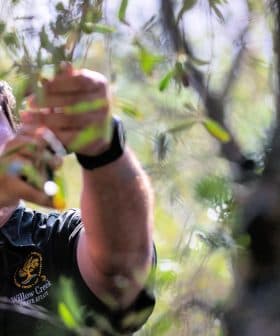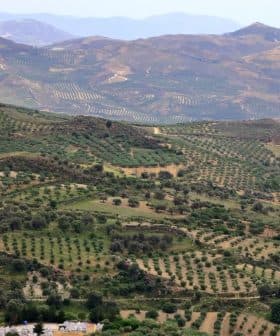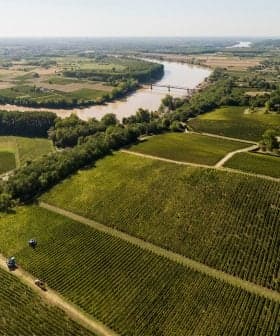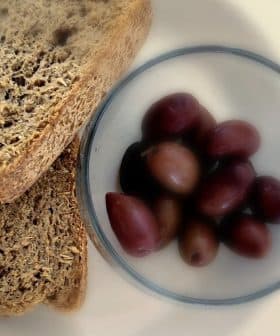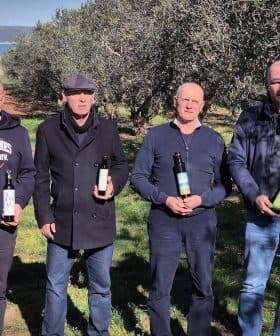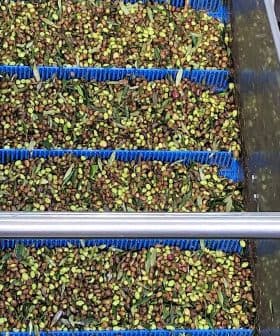Greeks Optimistic About Upcoming Harvest
Most producers are expecting a good harvest amid more favorable growing conditions than last year.
 Olive oil mill in Messinia
Olive oil mill in MessiniaOptimism is high for the upcoming olive harvest season in Greece, with predictions of a substantial crop ranging from 240,000 to 300,000 tons of olive oil, a significant improvement from last year. Producers across different regions in Greece are expecting good quality olive oils with low acidity, as conditions seem favorable with minimal issues related to pests and pathogens.
Only a few weeks remain until the olive harvest season begins in Greece, and the conditions seem favorable for a substantial crop with most olive oil producing territories rebounding from last year’s poor harvest.
Some early estimations from industry experts predict that the country’s overall olive oil yield will reach 240,000 tons, while some more optimistic projections estimate between 280,000 and 300,000 tons, a big improvement from last year’s small production of fewer than 200,000 tons.
This season we had zero problems with the fruit fly and other pathogens, so we expect olive oils of very low acidity and of excellent quality.
Most of the olive oil producers, mill owners, and agriculturists contacted this week by Olive Oil Times were optimistic, setting the bar high for a good crop throughout the country.
Giorgos Korinnis, an Agriculturist from Laconia, said the new harvest season will meet the expectations of local producers, with olive oil production for the region likely reaching the 25,000 tons that were produced in the 2017/18 harvesting period.
See Also:2019 Harvest News“This season we had zero problems with the fruit fly and other pathogens, so we expect olive oils of very low acidity and of excellent quality,” Korinnis said. “We predict to get around 80 percent of the production we had two years ago in terms of quantity. I can’t provide a better estimate, because a large portion of the table olives we grow here, due to their bigger than usual size this year, will be used to make oil and will contribute to the total quantity of olive oil produced in the region.”
Aristotelis Panagopoulos, a mill owner from the neighboring Messinia, an area that produces more than 50,000 tons of quality olive oil in good times, also predicts that this year’s harvest will be a big improvement compared with the previous one.
“The past season was highly problematic, with the main cause being the fruit fly,” Panagopoulos said. “Now things are looking much better. The fruit fly is absent and the only issue is that, despite that the blossoming of the olive trees was fine, the pollination of the flowers in some areas was incomplete. But all in all, I expect a very good season with quality olive oils.”
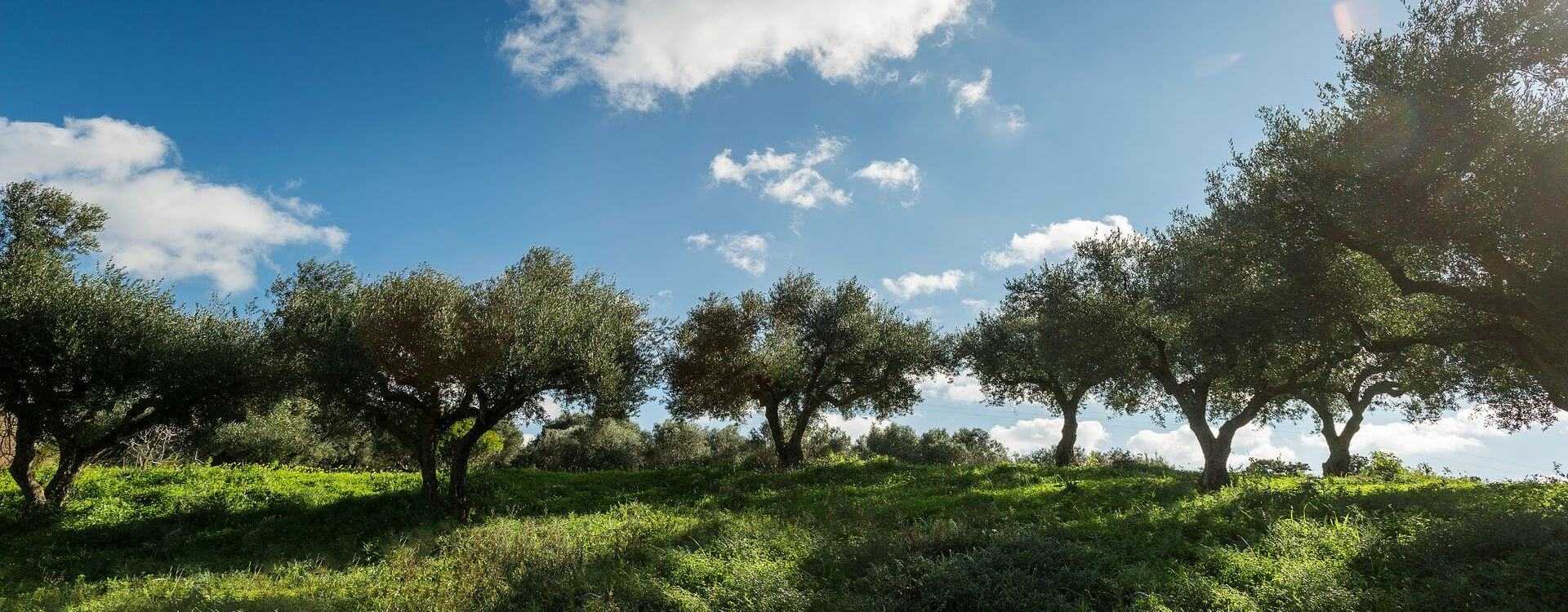
Grove at Goutis Estate
Other producers and agriculturists from Messinia told Olive Oil Times that there are no infections from the fruit fly in the olive groves of the region so far, but the next two months are crucial for any manifestation of the pest.
Their only concern was that the olive drupes in some areas are dehydrated due to the prolonged dry weather, but they explained that this is a reversible situation provided that proper irrigation is applied on time.
The Mycenaean-based olive oil producer and exporter Ioannis Kampouris said that there are no problems with the fruit fly in Peloponnesus, and he expects a good harvest both in terms of quantity and quality that will allow Greek olive oil to command high prices abroad.
Moving north to Halkidiki, grower and mill owner Margaritis Schinas anticipates the olive oil production to approach the levels of their best harvesting seasons when the area was making around 2,000 tons of olive oil.
“The harvest in our area will begin in late October and I expect a strong yield similar to two years ago,” Schinas said. “All five mills located on the Kassandra peninsula of Halkidiki will open this year, contrary to last season when only ours operated due to the very limited production. We expect to get quality extra virgin olive oil of very low acidity ranging at 0.2 to 0.3 percent.”
The island of Lesvos had a dismal harvest last season, with less than 5,000 tons of olive oil produced compared to 12,000 tons in the 2017/18 season. But now the tables are turned and local producers are in for a strong yield, as the local Department of Agriculture told Olive Oil Times.
“The whole island is expected to produce around 17,500 tons of olive oil,” they said. “It is going to be a great season with a near-record production and the highest in recent years. We performed timely crop-dusting operations and only now we observe a minimal manifestation of the fruit fly in certain areas.”
The oil mill of Despina Blavaki is in Crete, the Greek island that hosts more than 13 million olive trees and normally accounts for one-third of the country’s total olive oil production. They expect a good harvest of quality olive oil, with the quantity being close to last season’s overall production.
“The olive oil of the previous season was a bit heavy with high levels of acidity,” producers at the mill told Olive Oil Times. “But this year we expect to get extra virgin olive oil of low acidity and high quality. In the Heraklion region, there will be variations in production, with some areas giving a strong yield and others only half of their usual output of olive oil. Still, we estimate that the yield of the whole region will reach 70,000 tons of olive oil, almost similar to last season.”
On the west side of Crete near Chania, an olive oil producer and bottler, Eftychios Androulakis, bets more on the quality than the quantity of olive oil for the coming season.
“The harvest in our area will start in about two weeks,” Androulakis told Olive Oil Times. “The Tsounati and Koroneiki varieties we grow will likely give around 80 percent of their usual output. We did not have any problems with drought since the past winter was very heavy with a lot of rainfall that has kept the soil moist.”
Androulakis also expressed some reservations for the upcoming yield of olive oil due to some occurrences of the fruit fly in the area, estimating that the second generation of the bug will emerge in about one month’s time, posing a potential danger to the harvest.
“All things considered, I anticipate a good season in terms of quality but not quantity,” he concluded.


